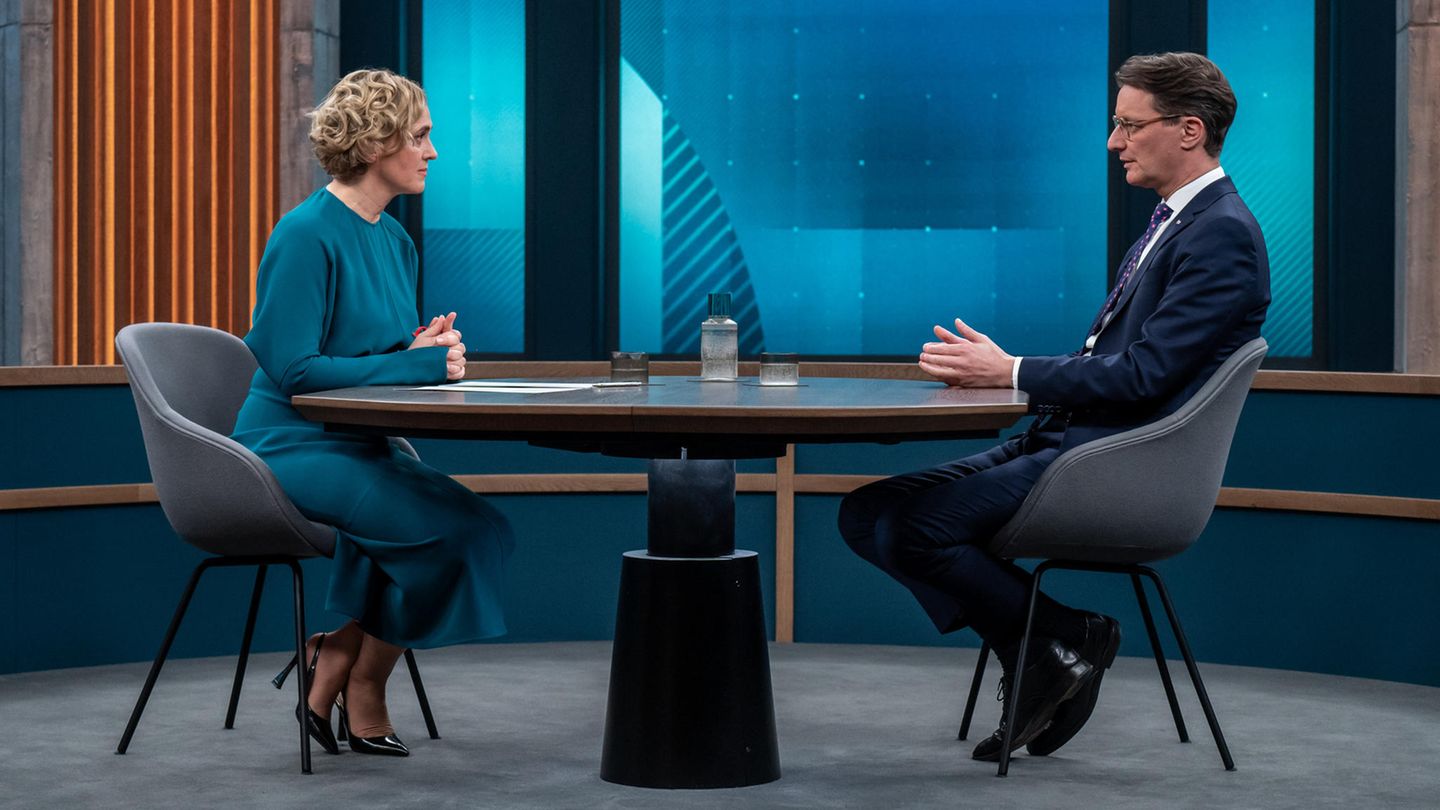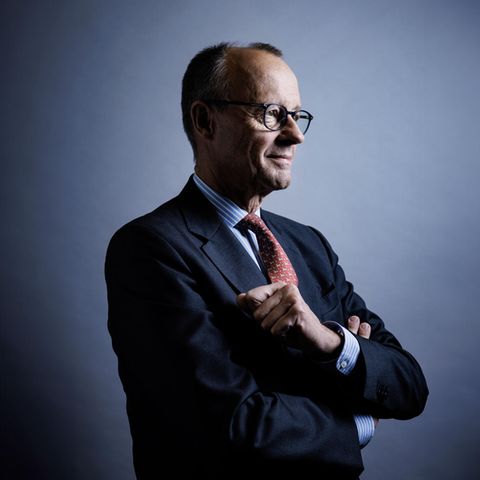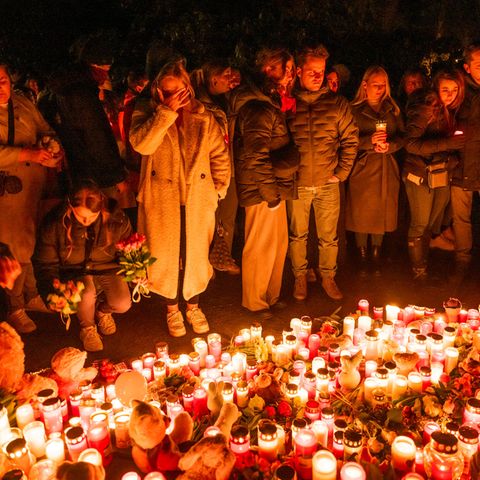“Caren Miosga”
Hendrik Wüst against the others
Copy the current link
Caren Miosga wanted to know how Germany becomes “safe” again. But in the debate about German asylum policy, the keywords remained.
And then it becomes very concrete: The Mayor Thomas Jung (SPD) explains: “There is a man in a flat share, without income, without proof of the apartment, his family wants to follow.” that then there was no apartment for the family. “They come directly into homelessness to Fürth and we will then send them to the homeless shelter.” The SPD politician becomes emotional: “I feel sorry for the children.”
Caren Miosga had actually set a clear goal. Hendrik Wüst (CDU), Prime Minister of North Rhine-Westphalia, should explain how Germany will be back. The debate was triggered by the tragic knife attack by Aschaffenburg and the political debate afterwards. Friedrich Merz, candidate for chancellor of the CDU, wants “no more compromises”. Among other things, he wants permanent border controls, an entry ban for all persons who have no valid entry documents and a detention of people who are subject to an enforceable person.
“What do people have the asylum looking to do with this knife?”
Reason enough to seriously deal with migration policy in Germany. But instead of a discussion that explores the feasibility of sharper rules or better integration, the program scratches the surface of the political debate and the real problems. In addition to Wüst and Jung, Vanessa VU (Zeit Online) and SZ journalist Ronen Steinke in the round-were more than enough discussion.
Vu questions why perpetrators are often young men who obviously don’t get the help they need. The journalist of ZEIT ONLINE, that becomes clear, does not believe in Friedrich Merz’s plans. She asks why there is no capacity for psychosocial care of refugees, but suddenly for border controls. “It is politically wanted and decided that certain people in this country are very bad.” At their next point, the audience claps: “What do people have the asylum looking to do with this knife?”
Steinke describes the dreams of those who actually want to train or work here, but encounter bureaucratic hurdles. “Then what is the very first one we say to them in Germany? The problem: crime is also correlated with unemployment.
The fronts have been clarified: VU and Steinke are against the intensification plans of the CDU, they have to defend Wüst – from permanent border control to detention for those required by the country. But on Miosga’s inquiries about practical details – for example, whether twice illegal driving really leads to deportation and whether you want to detain children – the answers from the Prime Minister remain spongy. Wüst emphasizes that one will not “detain children”, but at the same time refers to the need to set clear limits so that the rule of law does not lose acceptance. When asked whether after two crimes, he says, he says, that crimes are crimes. But “In the end, the proportion test has to run over it. Do you send it into a country where it is not safe where it is not safe?” What this means in concrete terms remains open.
Ronen Steinke, on the other hand, keeps: “Actually, we need people who come here. But then we talk about small crimes.” Even someone who is already working should suddenly be deported? This is absurd in a country that desperately searches for specialists. Vanessa VU refers to her own family history: once to leave, you and your siblings have completed a degree today and make your contribution to society – an example of how integration can succeed.
Caren Miosga: It remains superficial
In the end, the contradictions are particularly open. What if you really deal with all those who can work instead of force them into an endless asylum and deportation confusion? How does the state avoid an overwhelming asylum system? The show only roams these questions without going down anywhere. Miosga’s critical inquiries on Wüst lead to small concessions – the prime minister does not seem to be as uncompromising as his boss Merz. But real answers to “how?” – For example, how the CDU wants to implement hard claims with a coalition partner after the election.
Anyone who wanted to know how politics wants to react to challenges in asylum policy experienced a lot of keywords (border closures, detention, labor market integration), but little depth. In the end, the impression remains: it is about a lot – security, integration, the question of humanity and the rule of law and none of it was really explained.
Source: Stern
I have been working in the news industry for over 6 years, first as a reporter and now as an editor. I have covered politics extensively, and my work has appeared in major newspapers and online news outlets around the world. In addition to my writing, I also contribute regularly to 24 Hours World.






